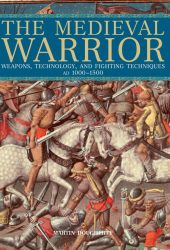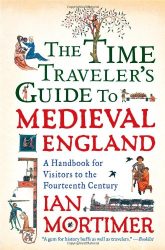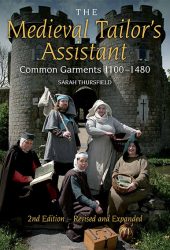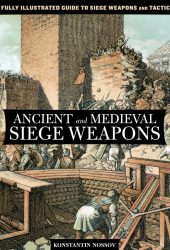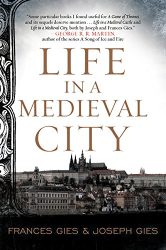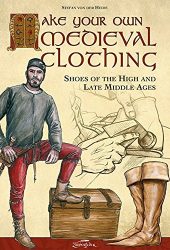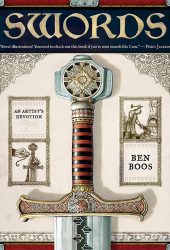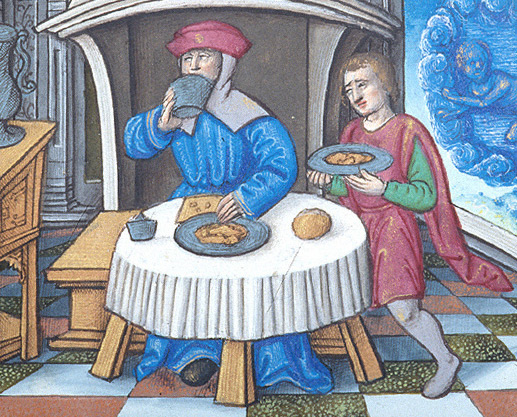
Domestic servants in the Middle Ages were in charge of procuring, storing, and preparing food. Many male servants were military personnel and worked as gatekeepers and esquires. Some of them served other functions as well, for example, fulfilling the roles of cooks, cleaners, maids, footmen, stablehands, and gardeners.
At the lower level, servants were recruited from the localities. Higher-level positions (such as attending a Lord) were often filled by men of rank, relatives or retainers.
What was Life Like for a Medieval Servant?
Life for a medieval servant was often difficult and demanding, with long hours and low pay. Servants were typically required to work from dawn until dusk, with very little time off, and were often subject to strict rules and harsh punishments for any mistakes or disobedience.
Despite the challenges they faced, many medieval servants were able to form close bonds with their employers and fellow servants, and some were able to rise through the ranks to become trusted advisors or even important members of their employer’s households or estates.
Who Worked as Servants in the Middle Ages?
Servants made up the bulk of the people who lived in a castle. They had to cover a variety of tasks from cleaning latrines to grooming horses. Everyone except the lord’s family and their high-ranking guests slept in the great hall, a very large room and the centre of the castle.
Castle servants were normally men, as service to a master was part of the structure of their medieval life. Lords expected to be served by well-born men and boys – while a king would expect to be served by the sons of great nobles.
Medieval Servant Ranks
Life in a medieval castle followed a very hierarchical structure. The Lord was, of course, at the top – governed and acted as a judge. But the servants had very defined positions too. High ranking servants had assistants that helped them perform their tasks. These could be grooms, pages, and valet de chambres – usually younger boys but sometimes also artists, musicians, and other specialists.
The Steward
The steward oversaw the responsibilities for the domestic affairs. He was in charge of tasks such as logistics, procurement, and staff management. This was not an easy role; some castles could easily exceed 50 inhabitants! The steward was also in charge of all legal and financial matters. Some large castles would have two stewards. When a lord was absent (for example during a war), the steward would take charge of the castle and run it in his name.
The Chamberlain
The chamberlain was responsible for the chamber or private living quarters, and the Master of the Wardrove, in charge of clothing and domestic items. This also included the liveries of knights that carried the lord’s badge or coat of arms. The chamberlain was sometimes also responsible for the Great Hall. His main concern, however, was the lord’s comfort.
The Marshal
The marshal had roughly equal authority as the steward. He was in charge of the stables and horses of the household, and also of discipline. A number of clerks usually helped the marshal keep track of everything.
The Seneschal
A medieval seneschal was a high-ranking official in a noble household or castle responsible for managing the estate and overseeing the household staff. The seneschal was typically appointed by the lord or lady of the household and was considered one of their most trusted advisors. A medieval chaplain was a religious official who served in a variety of capacities in medieval society. Chaplains were typically ordained priests or clerics who were responsible for providing spiritual guidance and pastoral care to members of the nobility, as well as other members of the community.
In short: The seneschal kept the records and did bureaucratic jobs. The chaplain saw to the spiritual needs of the castle folk.
The Chaplain
The chaplain usually held a permanent position and their own chapel inside the castle. In large establishments, the chaplain was known as the chancellor. His tasks included presiding daily religious services and writing business and personal correspondence. Chaplains had their own clerks. When they travelled, they sometimes took a portable altar!
The Laundresses
The laundress and her team were responsible for ensuing all towels, clothes, sheets, and tablecloths were clean. They washed them using a wooden trough with ashes and caustic soda. Sometimes, their duties included washing the lady of the castle’s hair.
The Chambermaids
The chambermaids were tasked with tidying and making rooms ready, preparing the fires, and emptying the chamberpots. Most domestic servants slept in shared chambers in the cellars or attics.
The Entertainers
Medieval castles also had a variety of entertainers that included actors, acrobats, troubadours, and jesters. They sometimes toured, staying in different places for an amount of time. Others were permanently employed by a lord. Some entertainers played music (the lute, the shawm, the vielle) or performed chanson de gestes and chansons d’amour, or epic knightly poems in Old French.
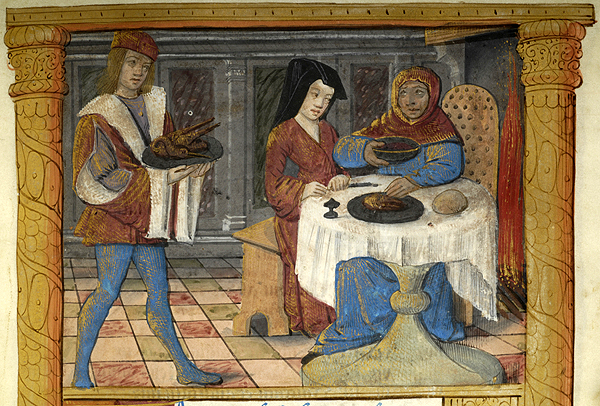
Books about Medieval Life
More Medieval Occupations
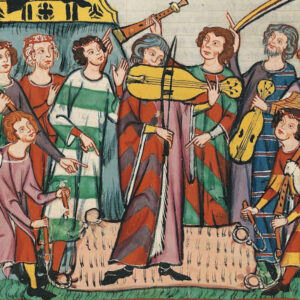
Medieval Minstrel
Medieval minstrels sang, played musical instruments, and told engaging stories. Here’s what life was like for a minstrel in the Middle Ages.
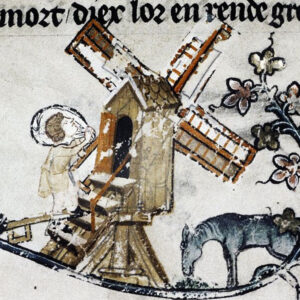
Medieval Miller
Millers were some of the most important tradesmen in the Middle Ages. Learn more about this medieval profession and how millers lived.
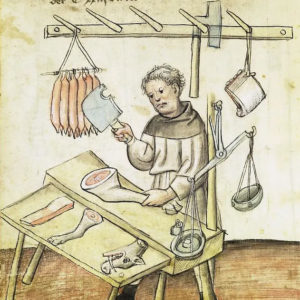
Medieval Butcher
Middle Ages butchers prepared meat, fish, and fowl for the people in a castle or a city. They sometimes had stalls in a marketplace.
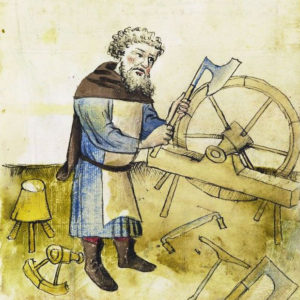
Medieval Wheelwright
Medieval candlemakers made candles from materials such as fat, tallow and beeswax.
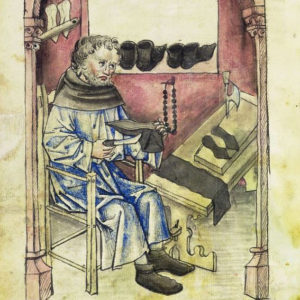
Medieval Shoemaker
Medieval candlemakers made candles from materials such as fat, tallow and beeswax.
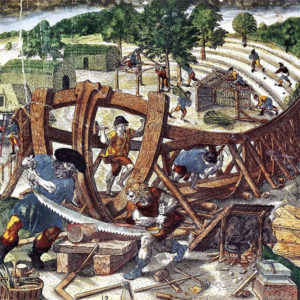
Medieval Shipwrights and Shipmaking
Being a sailor in the middle ages meant living a lonely and difficult life, as they would often set sail for months or even a year at a time.

